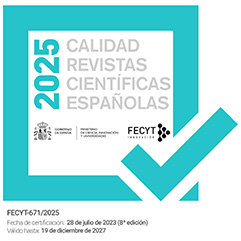The Compliance of the Baltic States with the Principle of Tolerance as Condition for the Development of the United Europe
DOI:
https://doi.org/10.17561/tahrj.v16.6038Keywords:
the Baltic States, the principle of tolerance, intolerance, social phobias, hate speechAbstract
The article studies the compliance of democracy of the Baltic States with the principle of tolerance. The study demonstrated specific social phobias (xenophobia, migrant phobia, homophobia, islamophobia, romaphobia, etc.), hate speech and other destructive trends in the Baltic countries that contradict values of liberal democracy. The authors argue that Baltic States face similar challenges of strengthening the principle of tolerance as well as how they differ in intolerance manifestations and mechanisms of their prevention and counteraction. In the Baltic States, issues related to promotion of tolerance are claimed to be common at two levels: at the institutional level (countries do not fulfil some of the EU guidelines aimed at enhancing the principle of tolerance); at the value level (population does not accept completely liberal-democratic values that the EU advocates).
Downloads
References
BATHKE, Benjamin (2019). “Estonia Battles Its Elected Racistsˮ, Foreign Policy, 18 Julу.
BERESNIOVA, Christine (2017). Holocaust Education in Lithuania: Community, Conflict, and the Making of Civil Society, Lanham: Lexington books. https://doi.org/10.30965/25386565-02201016
BIRNBAUM, Michael (2015). “Gay rights in Eastern Europe: A new battleground for Russia and the West ˮ, The Washington Post, 25 July.
BITIUKOVA, Natalija (2011). Hate Speech in Lithuania, Vilnius: Human Rights Monitoring Institute.
BUDRYTE, Dovile (2005). Taming nationalism? Political community building in the post-Soviet Baltic States, Burlington, VT: Ashgate Publishing. https://doi. org/10.4324/9781315241821
CHARTER OF THE UNITED NATIONS (1945). Available at: http://www.un.org/en/charter-united-nations/
CONSERVATIVE POLITICIAN: IF YOU'RE BLACK, GO BACK (2013). Available at: https://news.err.ee/107416/conservative-politician-if-you-re-black-go-back
DECLARATION OF PRINCIPLES ON TOLERANCE (1995). Available at: http://portal.unesco.org/en/ev.php-URL_ID=13175&URL_DO=DO_TOPIC&URLSECTION=201.html.
DITKEVIČIUS, Ruslanas and GOROCHOVSKIS, Marius (2015). “Kas yra tolerancija?ˮ, Tolerantiško Jaunimo Asociacija. Available at: http://www.tja.lt/index.php/lt/apie-tja/kas-yra-tolerancija
ECRI CONCLUSIONS ON THE IMPLEMENTATION OF THE RECOMMENDATIONS IN RESPECT OF LITHUANIA SUBJECT TO INTERIM FOLLOW-UP (2019). Strasbourg: ECRI Secretariat Directorate General II – Democracy Council of Europe.
ECRI CONCLUSIONS ON THE IMPLEMENTATION OF THE RECOMMENDATIONS IN RESPECT OF ESTONIA SUBJECT TO INTERIM FOLLOW-UP (2018). Strasbourg: ECRI Secretariat Directorate General II – Democracy Council of Europe.
ECRI REPORT ON ESTONIA (FIFTH MONITORING CYCLE) (2015). Strasbourg:
ECRI Secretariat Directorate General II – Democracy Council of Europe.
ECRI REPORT ON LATVIA (FOURTH MONITORING CYCLE) (2012). Strasbourg:
ECRI Secretariat Directorate General II – Democracy Council of Europe.
ESTONIAN DIVERSITY CHARTER (2012). Available at: https://ec.europa.eu/info/policies/justice-and-fundamental-rights/combatting-discrimination/tackling-discrimination/diversity-management/diversity-charters-eu-country/estonian-diversity-charter_en#about-the-charter [accessed 02 July 2020].
FERRAR, Jane W. (1976). “The dimensions of toleranceˮ, The Pacific Sociological Review, 19 (1), pp. 63-81. https://doi.org/10.2307/1388742
HELME: ESTONIA WILL NOT ACCEPT EVEN ONE ASYLUM SEEKER (2019). Available at: https://news.err.ee/990044/helme-estonia-will-not-accept-even-one-asylum-seeker
HJERM, Mikael, EGER, Maureen A., BOHMAN, Andrea et al. (2020). A New Approach to the Study of Tolerance: Conceptualizing and Measuring Acceptance, Respect, and Appreciation of Difference. Soc Indic Res 147, 897–919. https://doi.org/10.1007/s11205-019-02176-y
JANUŠAUSKIENĖ, Diana (2013). “Tolerancijos apraiškos Lietuvoje: vertybinės nuostatos tautinių mažumų atžvilgiuˮ, Socialinių mokslų studijos, 5 (2), рр. 421-432.
KAMENSKA, Anhelita (2017). Lifecycle of a hate crime. Country report for Latvia, Latvian Centre for Human Rights.
KIURĖ, Vilma Fiokla (2017). “A "Vilnius Model" for Roma Integration?ˮ, Journal Defending Нistory. Available at: http://defendinghistory.com/a-lithuanian-model-for-roma-integration/89892
KUKLINSKI, James H., RIGGLE, Ellen, OTTATI, Victor, SCHWARZ, Norbert, & WYER, Robert S., Jr. (1991). “The cognitive and affective bases of political tolerance judgmentsˮ, American Journal of Political Science, 35 (1), рр. 1-27. https://doi.org/10.2307/2111436
LEPIK, Sandra (2020). Aprillis ei saabunud pagulaskeskustesse uusi elanikke. Available at: http://www.pealinn.ee/newset/aprillis-ei-saabunud-pagulaskeskustesse-uusi-elanikke-n253456
LGBT TEEMALINE AVALIKU ARVAMUSE UURING (2012), Tallinn: Inimõiguste Keskus.
MIĶELSONE, Māra (2015). “Debates: Par un pret partnerattiecību reģistrāciju Latvijāˮ, Journal Ir. Available at: https://ir.lv/2015/3/2/par-un-pret-partnerattiecibu-registraciju-latvija/
POVILIUNAS, Arunas (2011). Lithuania. Promoting Social Inclusion of Roma, Brussels: European Commission.
RAPP, Carolin and FREITAG, Markus (2015). “Teaching tolerance? Associational diversity and tolerance formationˮ, Political Studies, 63 (5), pp. 1031-1051. https://doi.org/10.1111/1467-9248.12142
RESPONDING TO RACISM IN LATVIA (2019). Riga: European network against racism.
RESPONDING TO RACISM IN LITHUANIA (2019). Vilnius: European network against racism.
RUNGULE, Ritma and SEŅKĀNE, Silva (2018). “Values of Latvians Across Socio- Demographic Groupsˮ, in S. Kruk (ed.), Pluralism Anxiety. Acting Socially in Latvia, Rīga: Rīga Stradiņš University, pp. 91-104.
SPECIAL EUROBAROMETER 437. DISCRIMINATION IN THE EU IN 2015. REPORT (2015). Available at: https://data.europa.eu/data/datasets/s2077_83_4_437_eng?locale=en
SPECIAL EUROBAROMETER 493. REPORT ON DISCRIMINATION IN THE EU (2019). Available at: http://data.europa.eu/88u/dataset/S2251_91_4_493_ENG
SPRIEDUMS Latvijas Republikas vārdā Rīgā 2020. gada 12. novembrī lietā Nr. 2019-33-01 (2020). Available at: https://www.satv.tiesa.gov.lv/wp-content/uploads/2019/12/2019-33-01_Spriedums.pdf
SURVEY OF NEW IMMIGRANTS TO ESTONIA (2016). Available at: https://www. humanrightsestonia.ee/en/survey-of-new-immigrants-to-estonia-2016/
SUSTAINABLE DEVELOPMENT STRATEGY OF LATVIA UNTIL 2030 (2010). Riga: Saeima of the Republic of Latvia.
VENKOV, Jo (2018). Not just a simple twist of fate: statelessness in Lithuania and Latvia. Available at: https://www.statelessness.eu/blog/not-just-simple-twist-fate-statelessness-lithuania-and-latvia
VERKUYTEN, Maykel and SLOOTER, Luuk (2007). “Tolerance of Muslim beliefs and practices: Age related differences and context effectsˮ, International Journal of Behavioral Development, 31 (5), pp. 467-477. https://doi.org/10.1177/0165025407081480
VIIES, Mare (2011). Estonia. Promoting Social Inclusion of Roma. A Study of National Policies, Tallinn: Tallinn University of Technology.
VITMAN, Kostiantyn (2006). “Estonian language policy: sources and consequences of applicationˮ, Political management, 4, рр. 55-64.
VṌRDSE KOHTLEMISE SEADUS (2008). Available at: https://www.riigiteataja.ee/akt/126042017009
Published
Issue
Section
License
Copyright (c) 2021 Nataliya Khoma, Oleksii Oleksii Kokoriev

This work is licensed under a Creative Commons Attribution 4.0 International License.




























